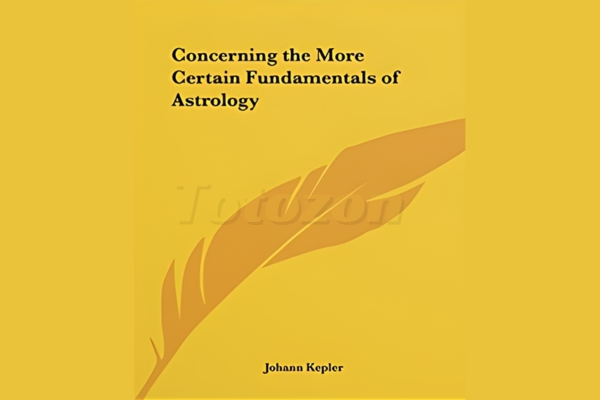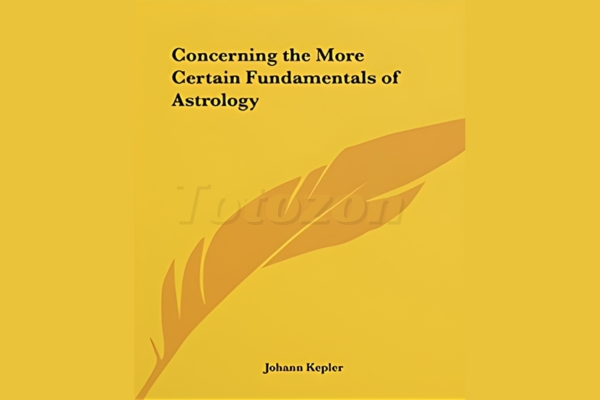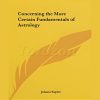Concerning The More Certain Fundamentals Of Astrology
$6.00
File Size: Coming soon!
Delivery Time: 1–12 hours
Media Type: Online Course
Concerning The More Certain Fundamentals Of Astrology
Astrology has fascinated humanity for centuries. This ancient practice, rooted in observing celestial bodies, offers profound insights into our lives. Let’s dive into the more certain fundamentals of astrology and explore its relevance in modern times.
What is Astrology?
Astrology is the study of the movements and relative positions of celestial bodies interpreted as having an influence on human affairs and the natural world.
The History of Astrology
Astrology dates back to ancient civilizations, including the Babylonians, Greeks, and Egyptians. Each culture contributed to the development of astrological systems that we recognize today.
Babylonian Beginnings
The Babylonians are credited with creating the zodiac, dividing the sky into twelve sections, each associated with specific characteristics.
Greek Influence
The Greeks introduced the concept of horoscopes and developed the mathematical calculations for predicting celestial events.
Core Concepts of Astrology
Astrology is based on several core concepts that help astrologers interpret the influence of the stars and planets.
The Zodiac Signs
The zodiac consists of twelve signs, each representing different personality traits and tendencies.
The Planets
Each planet in astrology governs specific aspects of life, from communication to love.
Houses in Astrology
The sky is divided into twelve houses, each representing different areas of life, such as career and relationships.
The Role of Birth Charts
A birth chart, or natal chart, is a snapshot of the sky at the exact moment of an individual’s birth. It serves as a blueprint for understanding one’s personality and potential.
Creating a Birth Chart
To create a birth chart, you need the date, time, and place of birth. This information is used to map the positions of the planets and houses.
Interpreting a Birth Chart
Astrologers analyze the birth chart to provide insights into an individual’s strengths, challenges, and life path.
The Elements and Modalities
Astrology categorizes the zodiac signs into elements and modalities, offering a deeper understanding of their characteristics.
The Four Elements
- Fire: Aries, Leo, Sagittarius – Passionate and dynamic.
- Earth: Taurus, Virgo, Capricorn – Practical and grounded.
- Air: Gemini, Libra, Aquarius – Intellectual and communicative.
- Water: Cancer, Scorpio, Pisces – Emotional and intuitive.
The Three Modalities
- Cardinal: Aries, Cancer, Libra, Capricorn – Initiators and leaders.
- Fixed: Taurus, Leo, Scorpio, Aquarius – Stable and determined.
- Mutable: Gemini, Virgo, Sagittarius, Pisces – Adaptable and flexible.
The Influence of Retrogrades
Retrogrades occur when a planet appears to move backward in the sky. These periods are believed to bring about introspection and challenges.
Mercury Retrograde
Mercury retrograde is notorious for causing communication mishaps and travel delays. Understanding its influence can help navigate these periods more smoothly.
The Significance of Transits
Transits refer to the current positions of the planets and their interactions with your birth chart. They provide insight into current and upcoming life events.
Major Transits
Significant transits, such as Saturn return, mark important turning points in life, often bringing profound changes and lessons.
The Astrological Calendar
The astrological calendar is filled with events, including new moons, full moons, and eclipses, each with unique influences.
New Moons
New moons symbolize new beginnings, making them ideal for setting intentions and starting new projects.
Full Moons
Full moons bring culmination and clarity, often revealing hidden truths and insights.
Compatibility in Astrology
Astrology offers tools for understanding compatibility in relationships, both romantic and platonic.
Synastry Charts
Synastry charts compare the birth charts of two individuals to determine compatibility and potential challenges.
Composite Charts
Composite charts blend the energies of two individuals into a single chart, providing a snapshot of the relationship’s dynamics.
The Practical Applications of Astrology
Astrology can be applied in various aspects of life, from personal growth to career planning.
Personal Development
Understanding your astrological profile can guide you in personal development, helping you harness your strengths and address your weaknesses.
Career Guidance
Astrology can offer insights into suitable career paths based on your natural talents and inclinations.
Common Misconceptions About Astrology
Astrology often faces skepticism and misconceptions. Clarifying these can help foster a more accurate understanding.
Astrology vs. Astronomy
Astrology is not the same as astronomy. While astronomy is the scientific study of celestial bodies, astrology focuses on their symbolic meanings and influences.
Astrology and Free Will
Astrology does not negate free will. Instead, it provides a framework for understanding potential influences, allowing individuals to make informed choices.
Conclusion
Astrology, with its rich history and intricate system, offers a unique lens through which we can understand ourselves and the world around us. By exploring the more certain fundamentals of astrology, we gain valuable insights that can enhance our lives.
FAQs
1. What is the difference between a sun sign and a moon sign?
- The sun sign represents your core personality, while the moon sign reflects your emotional nature.
2. Can astrology predict the future?
- Astrology provides insights into potential trends and influences but does not offer precise predictions.
3. How often do retrogrades occur?
- Retrogrades vary by planet, with Mercury retrograde occurring about three to four times a year.
4. Is astrology scientifically proven?
- Astrology is not considered a science but rather a belief system with symbolic interpretations.
5. Can astrology help with relationship issues?
- Yes, astrology can offer insights into relationship dynamics and compatibility, helping to navigate challenges more effectively.
Be the first to review “Concerning The More Certain Fundamentals Of Astrology” Cancel reply
You must be logged in to post a review.
Related products
Forex Trading
Forex Trading
Forex Trading
Forex Trading
Forex Trading
Forex Trading
Forex Trading

 How To Read The Market Professionally with TradeSmart
How To Read The Market Professionally with TradeSmart 






















Reviews
There are no reviews yet.